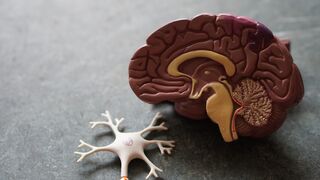Depression
4 Key Pathways in the Brain Biology of Depression
What does research say about pathways of depression in the brain?
Posted August 6, 2021 Reviewed by Ekua Hagan
Key points
- Researchers have now identified several potential brain pathways involved in the development of depression.
- Neurotransmitter issues have long taken center stage in depression, but there's more to this story.
- HPA axis and immune changes may contribute to depressive symptoms through their influence on brain function.
- Alterations in the immune system, especially chronic inflammation, have been linked to depression.

Scientific publications continue to arrive at the same painful conclusion: Depression is a major problem across the world, and it’s not going away anytime soon. But though we’re still struggling to provide adequate care to the hundreds of millions of people struggling with depression today, researchers have been gaining a new understanding of what’s happening in the depressed brain. In the process, four major brain pathways have been repeatedly identified for their potential contribution to depression. While we don't yet have a complete understanding of what's driving depression at the level of our brains, the following are some of the most promising frameworks for understanding what may be going wrong.
1. Neurotransmitter alterations
Of all the popular hypotheses around biological causes of depression, neurotransmitters are at the top of the list. Alterations in serotonin, dopamine, and norepinephrine are commonly cited as a major factor in the pathophysiology of depression, and the most commonly prescribed antidepressants are thought to act on these neurotransmitters. The role of neurotransmitters (especially serotonin) in treatment strategies for this condition became mainstream with the release of the first SSRI (Prozac) in 1987. However, it’s now thought that changes in neurotransmitters may not fully explain the effect of many antidepressants or the reasons why people develop depression.
2. Changes in neuroplasticity
A major breakthrough in brain research over the last few decades concerns the brain’s ability to rewire itself—and even grow new brain cells—throughout our lifespans. Some researchers now believe that the brain’s ability to change in response to the environment (called neuroplasticity) may be involved in depression. Specifically, it’s thought that decreases in neuroplasticity in two parts of the brain called the prefrontal cortex and the hippocampus may be partially to blame. It’s notable that conventional antidepressants, as well as newer drugs like ketamine, may work in part by increasing healthy neuroplasticity.
3. Immune system issues
With the immune system front and center during the COVID-19 pandemic, it’s important to realize that immunity does far more than just fight off microbes. It’s now thought that disordered immunity (especially chronic inflammation) may negatively impact our cognition and our mood. It’s been found that higher levels of inflammation are repeatedly linked to higher risk for depression. And though most haven’t heard of it, the brain has its own immune system and immune cells that may be playing an important role in our mental health.
4. HPA axis imbalance
Stress pathways have been studied for their role in a wide variety of disease states. Much of this research has focused on mental health conditions including anxiety and depression. High levels of stress exposure, especially early in life, are thought to predispose to a higher risk for depression. It’s also notable that excessive stress may increase inflammation and damage healthy neuroplasticity.
Many other brain pathways have been explored for their contribution to depression. These include signals from the gut microbiome and alterations in brain metabolism in addition to a variety of other processes. As research continues, it’s likely that new hypotheses for the causes of depression will develop. And while it’s tempting to grasp at a single unifying driver of this condition, it is also possible that multiple brain factors may be contributing to the experience of depression simultaneously.


